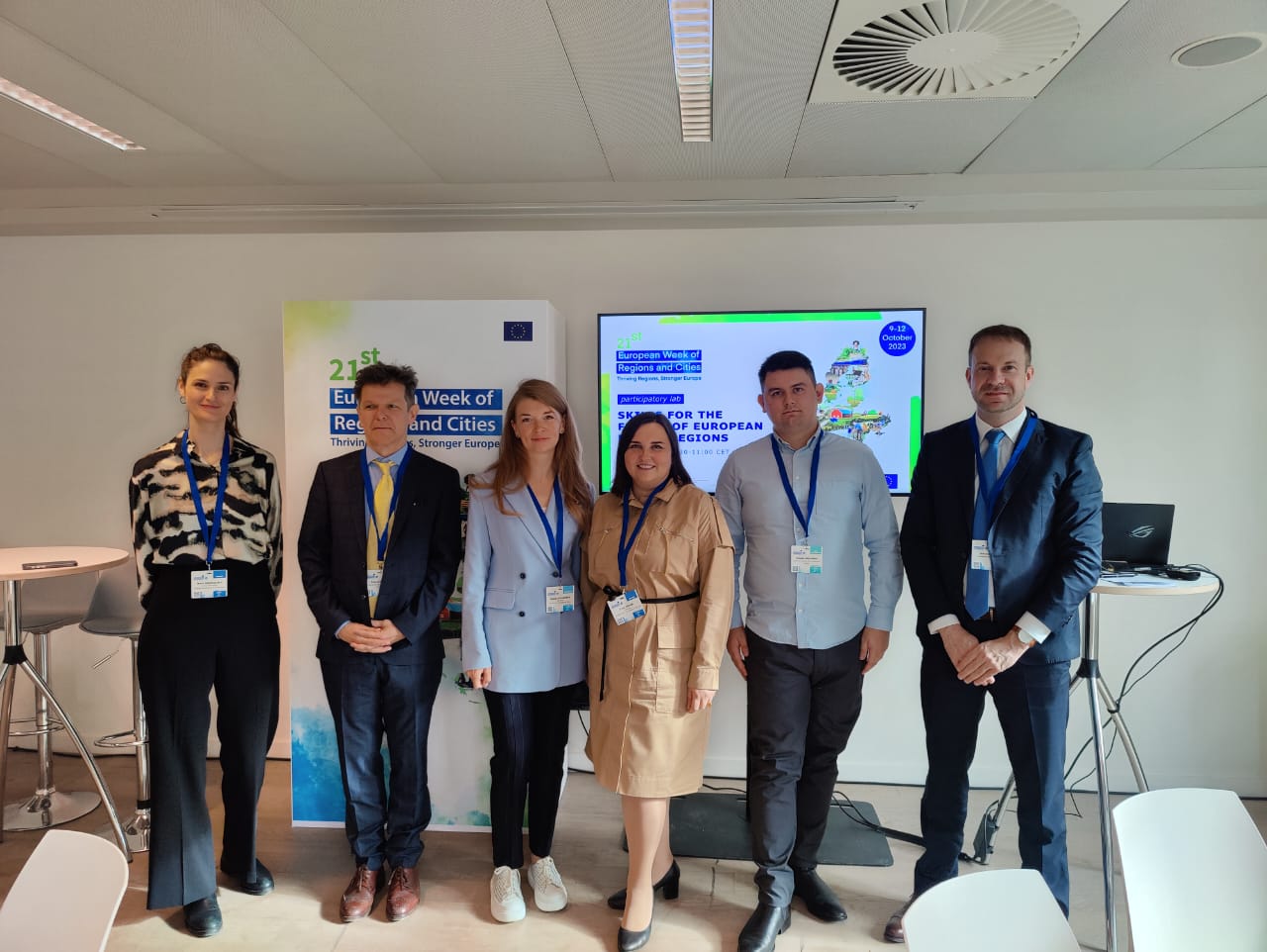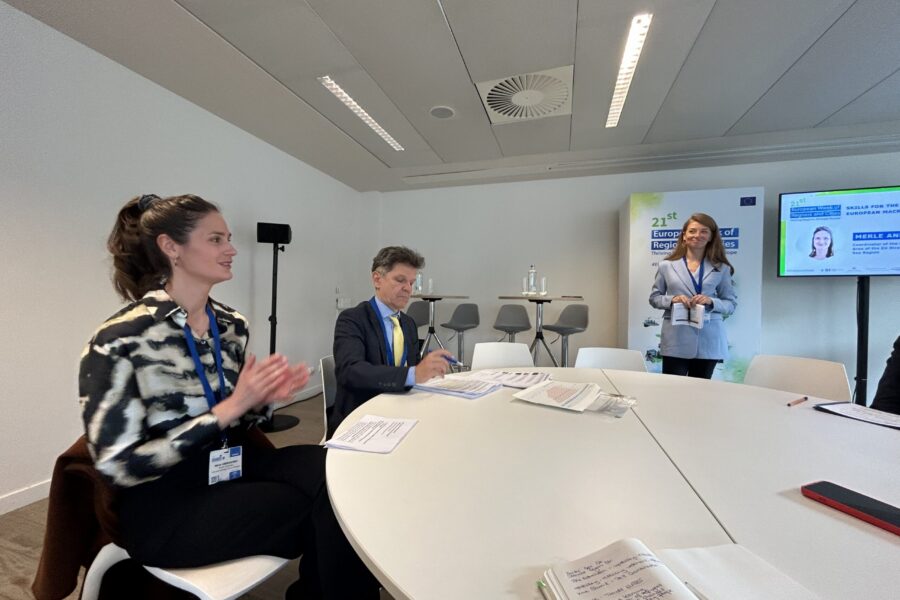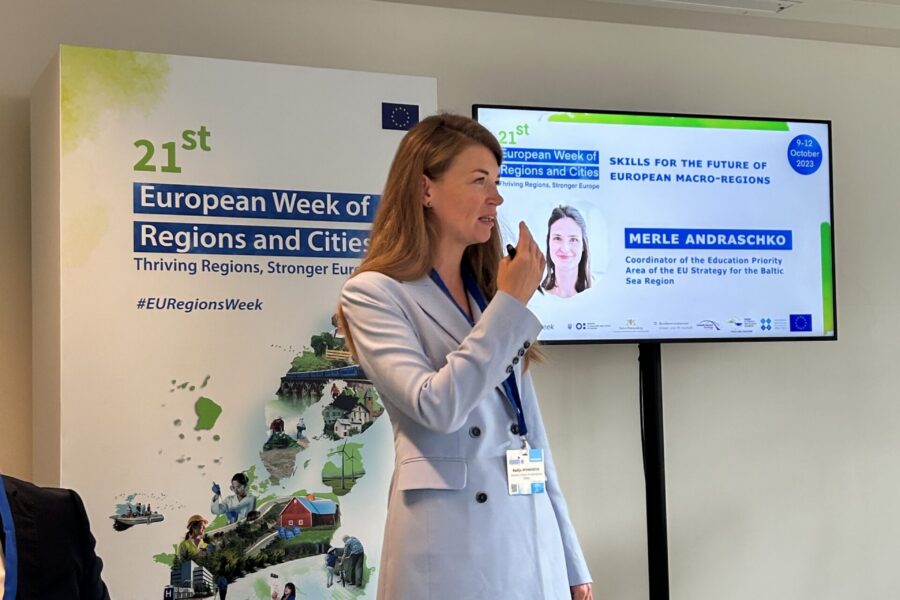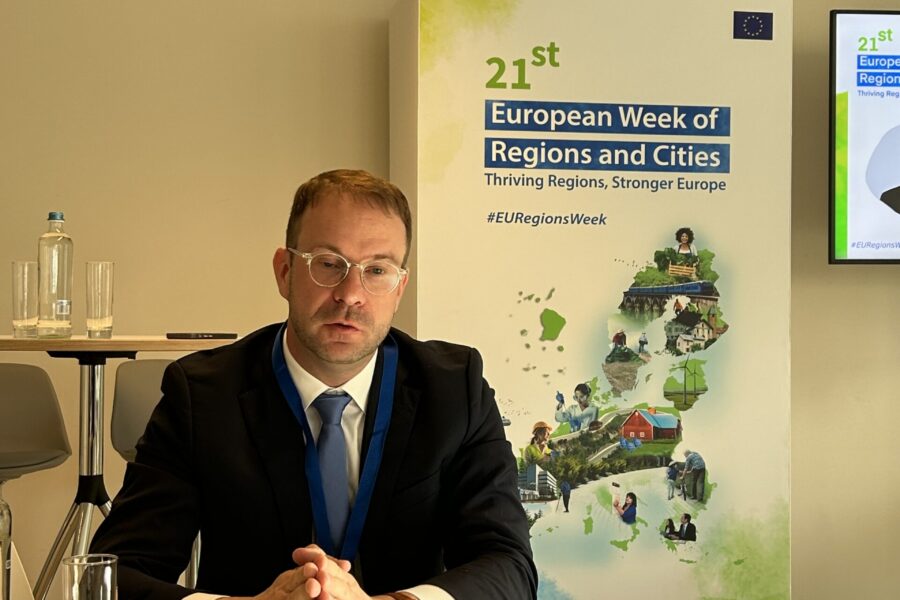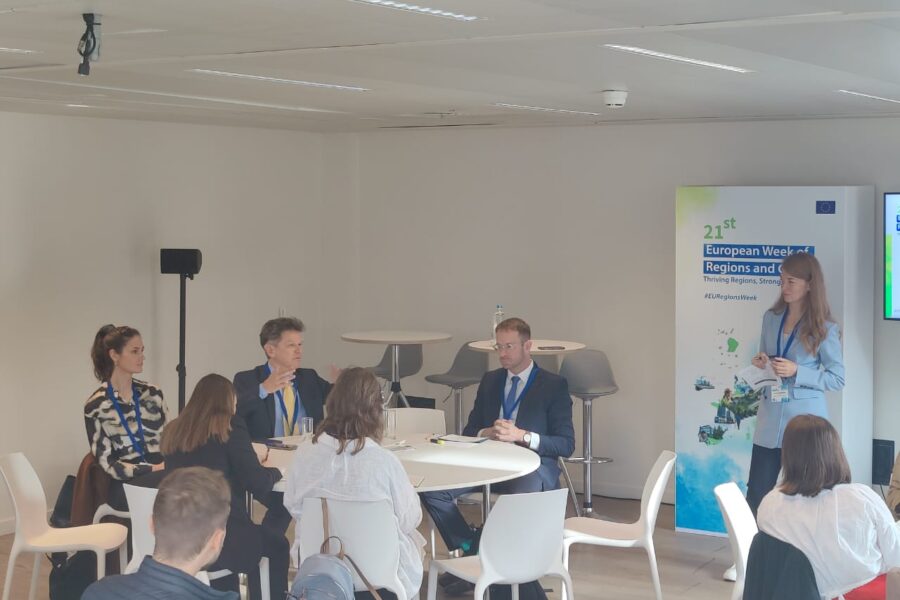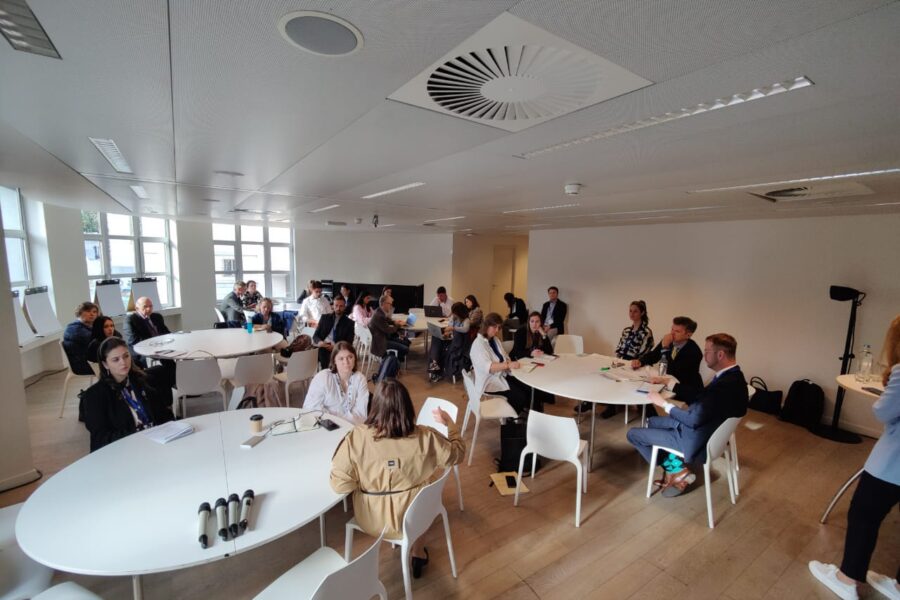PA 8 had on Oct 10th, 2023, the opportunity to work together with PA 9 “People and Skills”, at the event “Skills for the Future of European Macro-Regions” in the framework of the 21st European Week of Regions and Cities in Brussels, organized and moderated by Nadija Afanasieva and Mykhailo Omelchenko from the Ukrainian Institute for International Politics.
The speakers Dr. Alexander Zier, Baden-Württemberg Ministry of Economic Affairs, Labour and Tourism, who represented PA 8 “Competitiveness of Enterprises”, Merle Andraschko, Coordinator of Policy Area “Education” in the EU-Strategy for the Baltic Sea Region, Iryna Shumik, Ministry of Education and Science of Ukraine and Roland Hanak, Coordinator of EUSDR Priority Area 9 “People and Skills”, addressed the challenges in their regions, such as lack of labour force and skilled workers, but also discussed possible solution approaches.
The event was a great opportunity to share knowledge across Priority Areas and across Macro-Regional Strategies.
PA 8 had on Oct 10th, 2023, the opportunity to work together with PA 9 “People and Skills”, at the event “Skills for the Future of European Macro-Regions” in the framework of the 21st European Week of Regions and Cities in Brussels, organized and moderated by Nadija Afanasieva and Mykhailo Omelchenko from the Ukrainian Institute for International Politics.
The speakers Dr. Alexander Zier, Baden-Württemberg Ministry of Economic Affairs, Labour and Tourism, who represented PA 8 “Competitiveness of Enterprises”, Merle Andraschko, Coordinator of Policy Area “Education” in the EU-Strategy for the Baltic Sea Region, Iryna Shumik, Ministry of Education and Science of Ukraine and Roland Hanak, Coordinator of EUSDR Priority Area 9 “People and Skills”, addressed the challenges in their regions, such as lack of labour force and skilled workers, but also discussed possible solution approaches.
The event was a great opportunity to share knowledge across Priority Areas and across Macro-Regional Strategies.
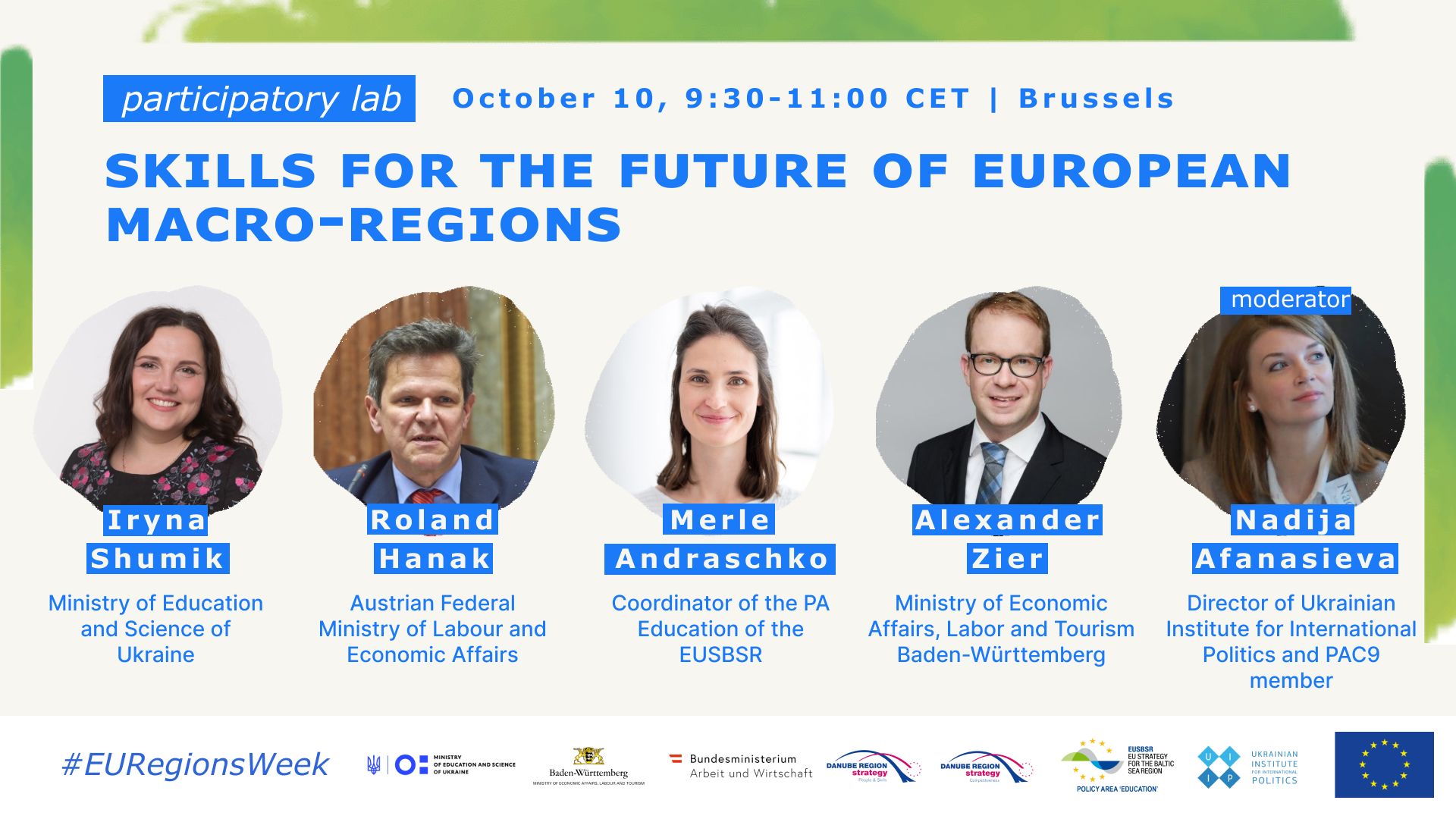
The panellists pointed out and explained why vocational training, upskilling and reskilling are so important for the regions.
Merle Andraschko mentioned that the demographic changes tend to be the biggest challenges right now in the Baltic Sea Region concerning several areas.
Roland Hanak shared some results from the Danube Region Monitor Report 2022 which was conducted to visualize developments in the Danube Region countries in the area of labour markets and education. This report shows, among many other aspects, that there is still a lot of room for improvement, especially in the area of digital skills, since the average shares in the Danube Region are below the EU-27 averages in all age groups.
Iryna Shumik, explained how the war in Ukraine has affected the education system, how Ukraine had to adapt to ensure that students could continue to learn and how challenging it was to establish a more digitized way of learning with implementing a blended learning system.
She also stated how important it is to also educate adults and therefore focus on vocational training (VET) because qualified workers are absolutely necessary to help Ukraine’s economy.
Dr. Alexander Zier, an expert on vocational education, also shared important aspects on vocational training and the approaches of Baden-Württemberg, e.g. a dual VET system that is applied by companies, so they can directly train according to their needs and recruite skilled workers of tomorrow themselves, which means that trainees have high chances of being taken on by the company after graduation.
One aspect became very clear during the panel and especially during the discussion with the audience: Each country in the Danube Region has more or less the same problems: shortage of skilled workers and lack of labour force in general. With regard to that all panellists agreed that cross-sectoral cooperation, sharing knowledge and establishing networks and partnerships are inevitable to solve these problems and to stabilize the labour market.
Please find more photos of the event here.




